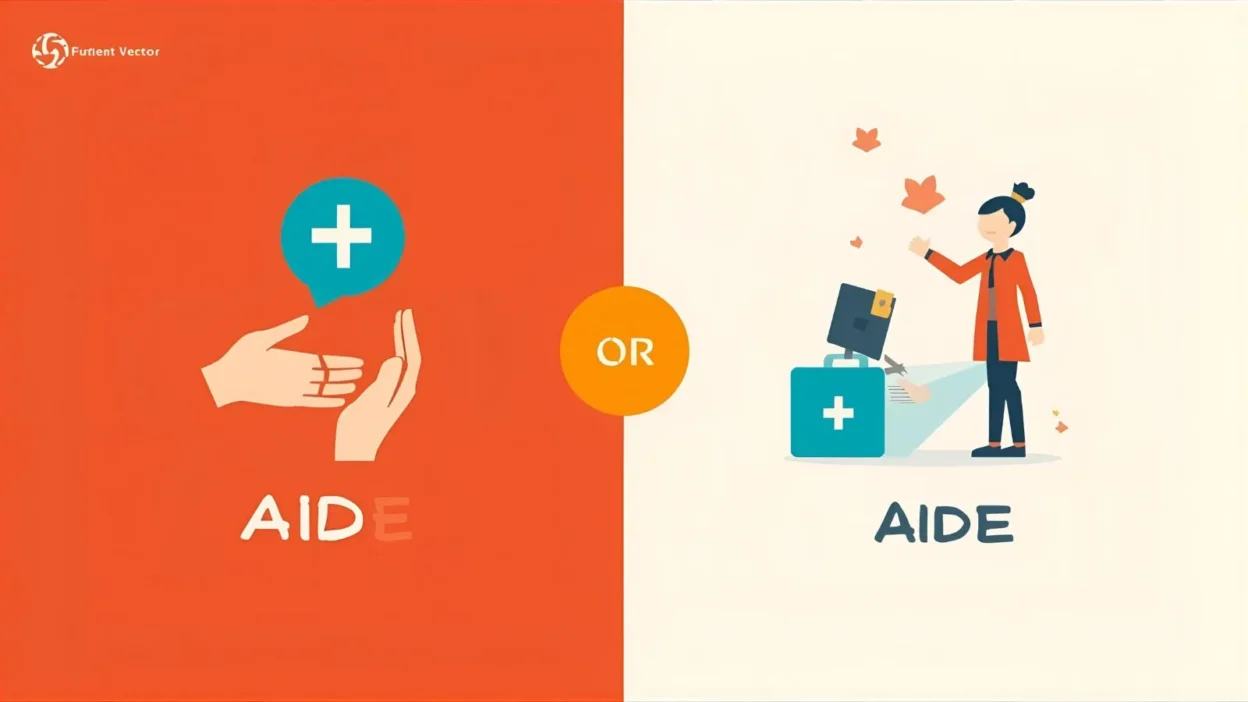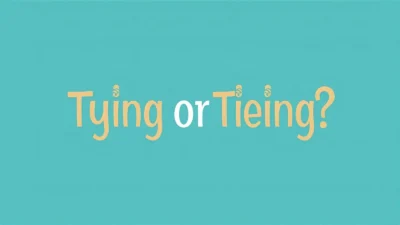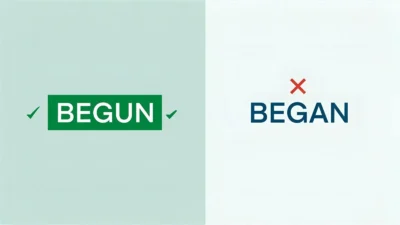The words “aide” and “aid” often confuse writers, students, and professionals alike. Though they sound the same, their meanings and uses are different.
This confusion leads many people to search for “aide or aid” to figure out the correct choice in their writing. For example, should you say “She works as a teacher’s aide” or “She gives aid to the teacher”?
The difference lies in grammar, origin, and context. Aid is usually a noun or verb meaning “help,” while aide is a noun meaning “assistant.” The wrong choice can change the meaning of a sentence.
This article explains the difference between aide vs aid, their origins, spelling variations, and common mistakes. We’ll also look at real-life examples, global usage, and Google search trends. By the end, you’ll know exactly when to use each word and how to avoid errors.
Aide or Aid – Quick Answer
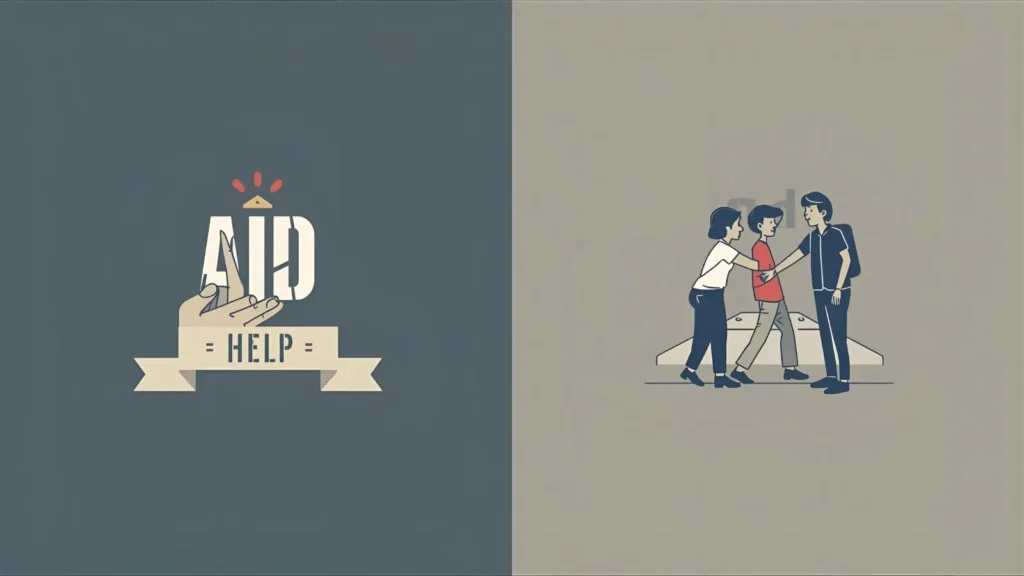
- Aid → Means help or assistance. It can be a noun or a verb.
- Example (noun): “The charity sent food aid.”
- Example (verb): “He will aid the rescue team.”
- Example (noun): “The charity sent food aid.”
- Aide → Means an assistant or helper. It is a noun only.
- Example: “She works as a teacher’s aide.”
- Example: “She works as a teacher’s aide.”
👉 Quick Rule: Aid = help; Aide = helper (person).
The Origin of Aide or Aid
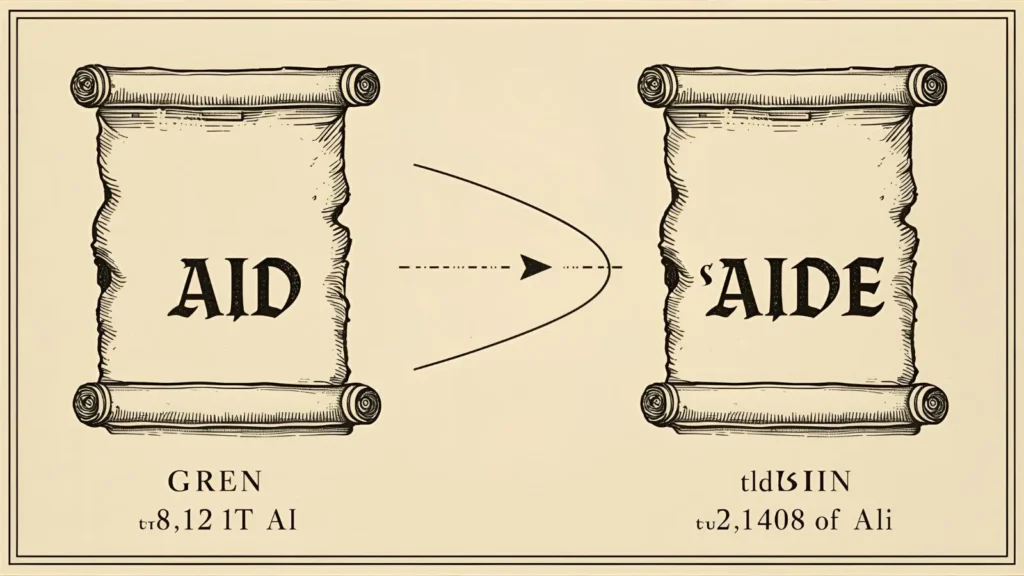
- Aid comes from the Latin adiutare (to help), later adopted into Old French as aid.
- Aide comes from the French word aide (assistant), borrowed directly into English in the 17th century.
The difference in spelling reflects etymology:
- Aid became the common English word for help.
- Aide kept its French form, used specifically for a helper, often in professional or official roles.
British English vs American English Spelling
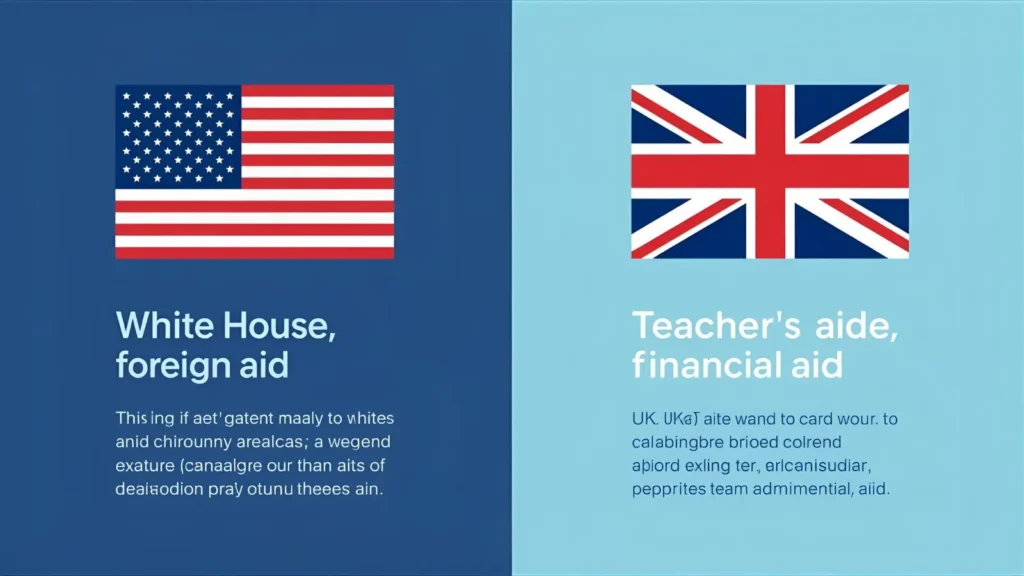
Both aide and aid are used in British and American English, but their frequency differs:
- Aid is more common in both regions, especially in contexts like “foreign aid” or “first aid.”
- Aide is often seen in American contexts like “White House aide” or “senior aide.”
Comparison Table
| Word | Meaning | Example | Usage (US vs UK) |
| Aid | Help, assistance (noun/verb) | “She received aid after the flood.” | Common in both US & UK |
| Aide | Assistant (noun only) | “He is a senator’s aide.” | More common in US English |
Which Spelling Should You Use?
- For general help or assistance → Use aid.
- For referring to a person in a supporting role → Use aide.
- Audience focus:
- US Readers → Familiar with aide in government or office roles.
- UK Readers → Use aid more often, but aide is still correct in formal contexts.
- US Readers → Familiar with aide in government or office roles.
- Global Writing/SEO → Stick with aid for general usage since it is searched more often.
Common Mistakes with Aide or Aid
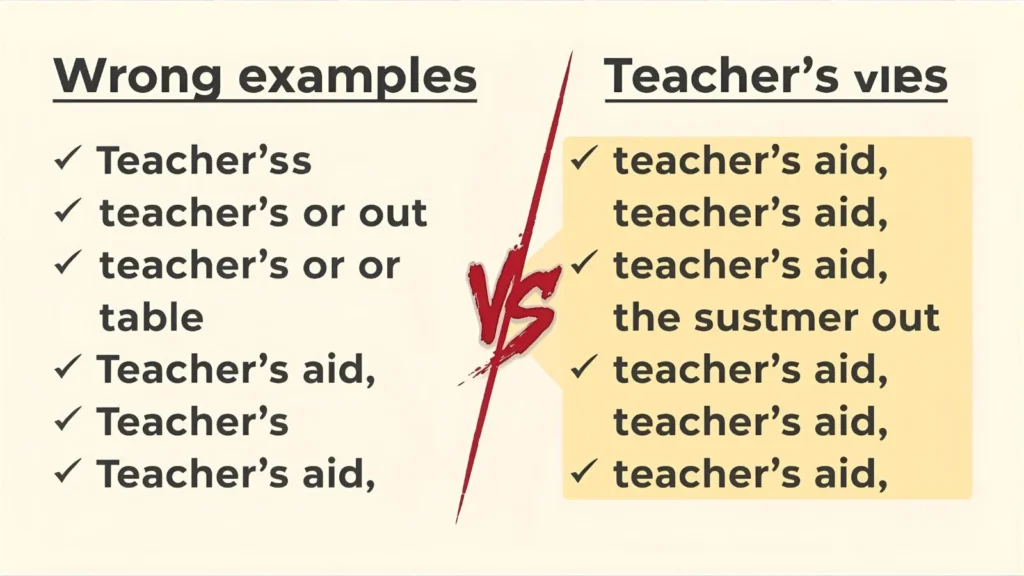
- Using aide as a verb → ❌ “He will aide the rescue team.”
✅ Correct: “He will aid the rescue team.” - Writing aid when referring to a person → ❌ “She is a teacher’s aid.”
✅ Correct: “She is a teacher’s aide.” - Mixing up spellings in formal writing → Always check if you mean help (aid) or helper (aide).
Aide or Aid in Everyday Examples
- Email: “We appreciate your aid in organizing the event.”
- News: “The senator’s aide spoke to reporters today.”
- Social Media: “Sending aid to disaster-hit areas ❤️.”
- Formal Writing: “The minister’s aide coordinated the conference schedule.”
Aide or Aid – Google Trends & Usage Data

- “Aid” is searched far more often worldwide, especially in topics like “financial aid” and “foreign aid.”
- “Aide” is most searched in the United States, often linked to politics (“White House aide”).
- Globally, aid dominates in both British and American English contexts, making it the preferred spelling for most audiences.
Comparison Table – Aide vs Aid
| Keyword | Part of Speech | Meaning | Example Sentence |
| Aid | Noun/Verb | Help, support | “The nurse will aid the doctor.” |
| Aide | Noun | An assistant | “She works as the principal’s aide.” |
FAQs
1. Is it “teacher’s aid” or “teacher’s aide”?
Correct spelling: teacher’s aide (assistant).
2. Can “aid” be both a noun and verb?
Yes. Noun: “She gave medical aid.” Verb: “He will aid the soldiers.”
3. Is “aide” used in British English?
Yes, but it’s less common than in American English.
4. Why do aide and aid sound the same?
They are homophones—words with the same sound but different meanings and spellings.
5. What’s the most common usage of “aid”?
Contexts like “financial aid,” “first aid,” and “foreign aid.”
6. Can I write “aide” instead of “aid” in casual writing?
No, because aide only means “assistant.”
7. Which word is better for SEO?
Aid is searched more globally, but aide is important for political or educational contexts.
Conclusion
The difference between “aide” and “aid” may seem small, but using the wrong one can cause confusion. Remember: aid means help (noun or verb), while aide means a helper (noun only). Their origins explain the difference—aid evolved into English through Old French, while aide kept its French spelling to describe an assistant.
For most global and SEO writing, aid is the preferred choice since it covers broader meanings and search volume. Use aide when specifically describing a person in a support role, especially in professional or political contexts. By following these rules, you’ll avoid common mistakes, write more clearly, and choose the right word for your audience.

